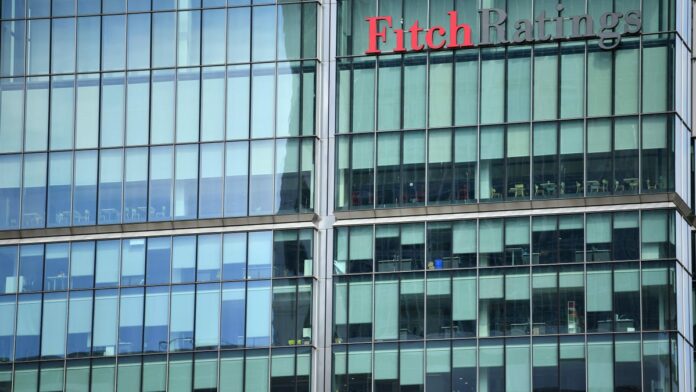The US has a deal to suspend the debt limit, but it still may get its credit rating cut. Fitch Ratings says the country’s AAA rating remains in jeopardy because of the prospects for even more dysfunction in Washington, if lawmakers cleave to the kind of brinksmanship that nearly left the US Treasury depleted of cash.
Credit rating firms like Fitch, Moody’s, and Standard & Poor’s are private companies that are responsible for guiding investors about what sovereign debt securities are safe investments. The rating system quickly tells investors how good a country is at paying its debts.
Each time the debt ceiling is used as a tool to get federal spending cuts, it creates a moral hazard in which lawmakers are tempted to bring the country closer and closer to default to get what they want. In 2011, the debt ceiling debate got so close to the default date that S&P cut the US’s sterling AAA credit rating by one notch to AA+, where it remains today.
At Fitch, US Treasurys still hold onto the highest possible credit grade. But the rating remains on watch for a possible cut even after the House and Senate approved the debt ceiling deal hammered out by US president Joe Biden and House speaker Kevin McCarthy.
More political standoffs could further erode confidence in the system
“Reaching an agreement despite heated political partisanship while reducing fiscal deficits modestly over the next two years are positive considerations,” Fitch noted in a press release. But “repeated political standoffs around the debt-limit and last-minute suspensions before the x-date (when the Treasury’s cash position and extraordinary measures are exhausted) lowers confidence in governance on fiscal and debt matters.”
Fitch went on to note that the state of governance in Washington has deteriorated over the past 15 years. One of the most glaring examples of this was the movement to contest the 2020 US presidential election. Further erosion of US democracy will make it less and less likely that the US pays its debts on time and retains its status as the world’s largest and most trusted financier.
Why this matters for companies and jobs
For companies, the cheapest source of funding for expansions in infrastructure, equipment, and workforce is the corporate bond market. And the bonds that corporations issue, which are priced relative to the yield on government debt, are affected by the credit rating of sovereign debt securities like Treasurys.
If the ratings for US debt are downgraded, government bond investors will demand higher yields to compensate for the increased credit risk. This will end up making borrowing for corporations more expensive, leaving companies less likely to expand operations and hire or retain workers, which would push the US closer to a recession.
Read more in Quartz
The US debt limit deal saved the economy but it set an awful precedent


